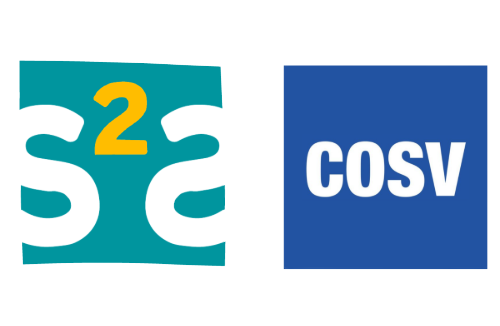The research team at COSV’s Social Economy Unit has created Impact for Policy (I4P), a qualitative impact analysis and collaborative methodology included in COSV’s incubation and acceleration programs for Social and Solidarity Economy in young ecosystem countries, such as the MENA and Balkans regions.
I4P helps forecast the potential impact of SSE models incubated and/or accelerated in various social and economic policies. By utilizing a human-centered analysis and a series of unstructured dialogues, the participatory inquiry approach gains insights into SSE practitioners’ motivations, actions, obstacles, and future intentions, along with sector-related policy recommendations.
The first successful pilot of the Impact for Policy methodology was conducted under the SEE CHANGE project, co-funded by the EU in Lebanon. As part of this initiative, a policy paper was developed in collaboration with peers from Lebanon, the MENA region, Europe, and Africa. The policy paper, titled “The Role of Social Enterprises in Advancing SDGs in Lebanon and the Mediterranean Region” will be published in November 2023 in collaboration with Catalyst 2030. Over the course of three months, five working groups dedicated to SDGs 2, 4, 8, 11, and 12 met online once a month to review their primary activities, best practices, issues they faced/face, and the influence their actions had on policies. This program was established by the SE unit, and participants from incubated projects and international social entrepreneurs made up a maximum of eight members per group.
Collaborating with Catalyst 2030 was crucial to reach into their social enterprise network and recruit their social entrepreneurs to participate in the program. Additionally, a group consisting of a policy expert, facilitators, reporters, and interpreters was formed to manage the virtual meetings. Lebanese, Tunisians, Italians, Britons, Egyptians, Yemenis, Syrians, Palestinians, Jordanians, Nigerians, and Canadians convened in separate sessions to talk about various themes with the goal of addressing three key research objectives:
- Define social entrepreneurship?
- Assess the collaboration between MENA region social enterprises among each other and with local development authorities.
- Recommend strategies in the advancement of SDG within the legal framework of action.
Each of the three meetings focused on a different set of subjects designed to facilitate the exchange of ideas and the discovery of solutions to the primary research questions. Considering the market and social values of their enterprises, the first session was designed to discover how the impact of social entrepreneurs’ aids in the advancement of SDGs. Topics like self perception as social entrepreneur, personal drivers, organizational structure, social value creation, economic value creation, and accountability were discussed.
The second session focused on the organization’s context, including its relationship to its external environment, local community, similar organizations, and the State. The discussion’s overarching goal was to gain insight into the social entrepreneur’s network-building process and the role it played in achieving SGDs. Some examples of possible discussion points include: how do outsiders view the work your organizations undertake? How do you ensure the long-term viability of your company’s finances? How do you rate the efficacy of your network cooperation? And how can you measure your enterprises’ social impact?
The third session was created so that lessons could be learned from the social enterprises’ experiences and solutions could be made more apparent. Topics covered included the challenges of administration, the availability of funds and human capital, the growth of the SDGs, and a role-playing exercise that explored the dynamics of cooperation between two social entrepreneurs working together to achieve a common goal.
The peer exchange program is considered as an attempt to create a free knowledge sharing platform where social entrepreneurs from different countries of the world meet and discuss topics that benefit them and help in producing the targeted policy paper. The conversations were insightful, and the participants’ stories, reflections, experiences, issues, and solutions were motivating and invaluable to the program’s success. During the networking session that ended the program, Laura from United Kingdom said: “I enjoyed the sessions, although they were long and intense, but the most important thing is that there was enough room for everyone to participate.
A few participants’ opinions
Atef from Egypt said: “I was fortunate to participate in the program, and as a researcher who participated in several workshops and online sessions, I can say the program was very well organized and the sessions were perfectly facilitated. The surveys were relevant and complementary to the discussions and the analysis across the region will be helpful and beneficial to all social entrepreneurs, especially in terms of policies, challenges, and solutions.”
Faten and Shahenaz from Yemen said that they enjoyed the sessions although they were long and they had to free their time to be able to attend, they explored and learned a lot.
Suzane from Palestine said: “It was a great opportunity to be part of the sessions and to meet people with diversified profiles. The topics were relevant to our organization where the session on financing made us able to reconsider our practices and benefit from the experiences of others.”
Yaman and Gaith from Syria indicated that they lack such programs in Syria and that this program enriched their experience and knowledge on SDGs.

